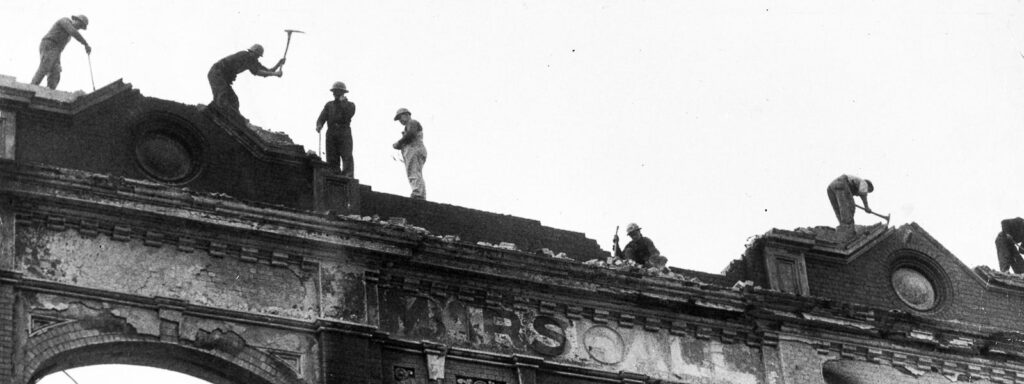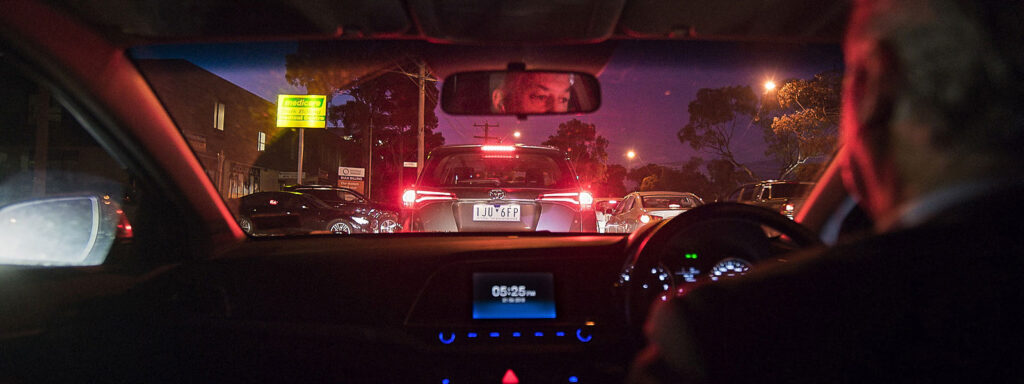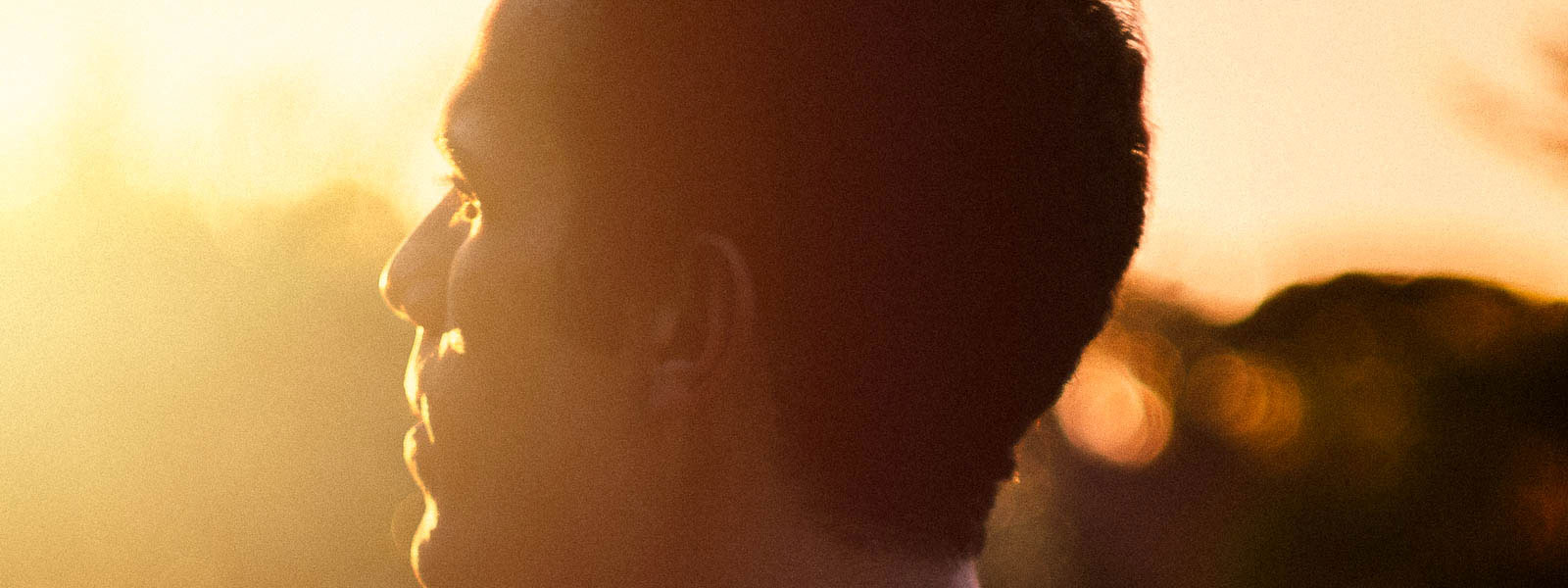When the Melbourne International Film Festival (MIFF), one of the oldest continuing film festivals in the world, announced a mammoth celebration of Melbourne on Film for their 70th anniversary, the joy of reading the programme was tangible. The layered and varied catalogue of films would leave any attendee lightheaded with the possibilities on offer, but it was the celebration and love for the city of Melbourne and the stories that had been told on its streets that elevated the line-up beyond your standard festival fare. After the pandemic threatened the festivals existence, forcing a pivot online in 2020, and the 2021 in-person event stymied by snap lockdowns, the 70th iteration felt like an explosion of cinematic glory, with literally hundreds of films and film-adjacent experiences scheduled for the month of August.
For a city that endured some of the harshest and most intense lockdowns in the world, under the banner of ‘Melbourne on Film’, this iteration of MIFF paid homage to everything that makes Melbourne, well, Melbourne. From a MIFF exclusive ‘Hear My Eyes’ presentation of Andrew Dominik’s masterpiece Chopper that involved Springtime and Mick Harvey delivering a live score experience to remember, to a wealth of MIFF Premiere Fund supported films such as Bruce Permezel & Rhian Skirving’s eco-focused doc Greenhouse by Joost, to Alena Lodkina’s genre-tripping Petrol, to Goran Stolevski’s queer drama Of an Age, to Sara Kern’s powerful migrant drama Moja Vesna, and with the stories of homelessness in Sue Thomson’s Under Cover, the streets of Melbourne were well and truly represented on screen at MIFF’s 70th birthday.
That offering alone would be enough to make any Australian cinephile excited about what was on display, but they were equally rewarded with a massive retrospective catalogue of films that showcased Melbourne on screen across the decades, featuring a breadth of offerings from Australian film history, from the very first feature film to lost classics to hidden gems deserving of reappraisal. Over the past few years, there’s been a welcome revival of retrospective screenings for Australian films, with MIFF’s 70th anniversary line-up truly impressing with its embrace of Australian film history:
2000 Weeks (Tim Burstall, 1969), A Ticket in Tatts (F.W. Thring, 1934), Body Melt (Philip Brophy, 1993), Bonjour Balwyn (Nigel Buesst, 1971), Clay (Giorgio Mangiamele, 1965), The Club (Bruce Beresford, 1980), Death in Brunswick (John Ruane, 1990), Dogs in Space (Richard Lowenstein, 1986), Ghosts… of the Civil Dead (John Hillcoat, 1988), Head On (Ana Kokkinos, 1998), The Home Song Stories (Tony Ayres, 2007), Homosexuality: A Film for Discussion (Barbara Creed, 1975), In Search of Anna (Esben Storm, 1978), In This Life’s Body (Corinne Cantrill, 1985), Love and Other Catastrophes (Emma-Kate Croghan, 1996), Mad Max (George Miller, 1979), Malcolm (Nadia Tass, 1986), Monkey Grip (Ken Cameron, 1982), Moving Out (Michael Pattinson, 1983), Noise (Matthew Saville, 2007), Oz – A Rock’n’Roll Road Movie (Chris Löfvén, 1976), The Pudding Thieves (Brian Davies, 1967), Pure Shit (Bert Deling, 1975), The Rise and Fall of Squizzy Taylor (Nigel Buesst, 1969), The Story of the Kelly Gang (Charles Tait, 1906).
For those unable to attend in person, a massive line-up of Aussie films (shorts, documentaries, and fiction) from yesteryear and now was on offer via the online platform MIFF Play. As an interstate interloper attending MIFF digitally over the past few years, it’s an absolute delight to know that I can still attend the festival in some capacity online, even if it doesn’t carry the same impact of festival fever that an in person presence carries (both in a positive and negative context). The online line-up for Australian films included a broader array of Australiana, with a smattering of that Melbourne vibe:
[STERILE], 2000 Weeks, Because We Have Each Other, Clay, The Endangered Generation?, Fire Front, Franklin, Gem, General Hercules, Go With Grace, A House, Lime Parfait, The Lonely Spirits Variety Hour, The Lost City of Melbourne, Love and Other Catastrophes, Lucky Peach, Mate, Mira’s Daughter, Moving Out, Mud Crab, Myth, Noise, Not Dark Yet, Patterns of the Afternoon, Petrol, Pink Reef, Shadow, The Sound of Dreaming, Strange Country, Sushi Noh, A Ticket in Tatts, Tuī Ná, Under Cover, Victim, Volcano Man, We Never Asked for This, We Were Once Kids, When Pomegranates Howl.

It’s hard to truly perceive what seventy years of a film festival truly looks like over time, with MIFF standing alongside the Berlin International Film Festival (1951) and the Cannes Film Festival (1946) as being one of the oldest film festivals still operating in the world, having been established in 1952. Thankfully, Gus Berger’s immersive retrospective documentary The Lost City of Melbourne transported viewers to the early 1900s with stunning archival footage and photography that showcased the Victorian architecture of the city that has been demolished and erased over time. Many of Melbourne’s magnificent movie theatres were razed in the process, cruelly stealing away institutions that played major roles in the cultural identity of Melbourne.
Screening at one of Melbourne’s most iconic venues that still stands today, The Forum, The Lost City of Melbourne screened to a sold-out audience of 600 people, with Gus saying: “I felt like I was in safe hands [with an audience] that was going to appreciate it, because there’s a lot of people that love all of that … history and [the] stories of Melbourne.”
Exploring that history and the stories that emerged from the footage and photos was important for Gus, “I’ve always been fascinated with photography [and] archival film. There were some books that were published by the local library, written by local historians who were potentially retired and had the time. There’s one book [that was] such a detailed look at all of the cinemas and theatres that used to exist in Brunswick.
“It really went from the first rudimentary cinemas, what they were like, what they were called, where there were no photographs at that point of those cinemas. Some of the stories [were of] random projectionists [who] were literally showing films projected onto sidewalls on buildings on Sydney Road in Brunswick. There was one guy that had an oil lamp projector and he was putting random films onto walls in 1905 or 06.”
That love of cinema and the appreciation for what practitioners, filmmakers, and enthusiasts were doing on the streets of Melbourne was a theme that carried through the MIFF 70 line-up. Documentarian and projectionist Rob ‘Bert’ Murphy ode to projection booths and the people who operate them Splice Here: A Projected Odyssey, screened at the festival with tribute screenings to David Thomas. Working as MIFF’s Technical Manager for over three decades, David Thomas passed away in 2020, leaving a legacy of work as being ‘the man responsible for much of MIFF’s magic in the cinema’.
A film festival of MIFF’s magnitude has managed to continue for decades on the strength of industry icons like David, and the tribute screenings showcased that completely. Bert talked about the importance of David in the industry, and what it meant to be able to screen Splice Here as a tribute to the MIFF icon:
“Every projectionist I know has worked with Dave at some point, either at MIFF or at another cinema and I’m the same, I spent seven years at the Nova with Dave. And he was just one of those people [that] no matter how stressed or crazy you are feeling, as soon as you went into a room with Dave, you felt instantly calm. He was just a really, really calming presence. He always had something understated to say about any situation, he would never freak out. I do remember walking into a Bio box [projection booth] at one stage with him. And the pickup had failed. The whole film had been playing out onto the floor. So it was still running through the projector the audience didn’t know any difference. But the Bio box was knee deep in film. And I hadn’t been in the job that long. And I almost panicked instantly. Dave just put his hand on my shoulder, and that stopped me from jumping forward and said, ‘Just let it play out. Go to front of house and tell them the next session is cancelled.’ Like anybody else just would have gone “Oh my god.”
“He was a lovely man. Really incredible at his craft. I used to talk to him for ages. He ran the roadshow release that came here of Napoléon, Abel Gance’s film from the 20s. And he ran the triptych sequence in that. Amazing passion and knowledge, he was just a lovely man. I was really thrilled when MIFF got in touch and said, ‘We really love your film and we’d love to use it as a tribute to Dave.’ And I thought, ‘Oh, that’s just perfect. That is perfect.’ Being a film from a projectionist point of view, I’m so glad that it’s been used in this way.”

Splice Here also shows the final screening of the 15/70mm projector at Melbourne’s IMAX cinema before the IMAX Dual Laser projector was installed (the IMAX 15/70mm film projector would be later reinstalled, making the Melbourne IMAX one of the few locations in the world to offer both digital and film formats), and the giddiness of the projectionist and the joy of the audience reminds of how genuinely exciting the cinematic viewing can be for audiences and filmmakers.
For Melbourne filmmakers Thomas M. Wright and Alena Lodkina, they held the prestigious honour of having their films The Stranger and Petrol be screened on the giant IMAX screen, making them the only two Australian features screened at the auditorium. For Alena, having Petrol in the same program as her peers, reinforcing the ‘pockets of movement’ that thrives within the festival itself:
“I’m really excited to go back to Melbourne and try and catch some of the Melbourne on Film program, which looks really brilliant. That’s really exciting that that’s happening this year when my film is coming out that is so Melbourne. Also, there’s so many great Australian films in the program. I’m also really looking forward to seeing The Plains by David Easteal.”
While getting to screen on the biggest screen in the Southern Hemisphere is an achievement in itself, being the opening film for MIFF is an honour that precious few filmmakers have had bestowed upon them. Equally so, having two films screen at the festival is a rarity. For Macedonian-Australian filmmaker and Accelerator Lab alumnus Goran Stolevski, that privilege came with his Melbourne-based film Of an Age being the Opening Night Gala film for the festival, and his Macedonian set folk horror You Won’t Be Alone.
Speaking about that honour as he came down from the opening night high, Goran said, “Hearing that audience with three of my favourite people next to me, that was a moment of ‘Did that actually happen?’ It was a very special experience just hearing everyone, the reaction to the film as it was playing, and then afterwards. It’s not been a very easy road, and I don’t say that to complain, it shouldn’t be easy filmmaking or getting to the position where you can make films. It should be hard. And it happens every week or two, where for about five minutes or so I’m overcome by the sense of ‘Oh my God. I actually make movies. That’s what I do now.’”
Goran’s relationship with MIFF is equally important, with Of an Age receiving funding from the MIFF Premiere Fund and Accelerator Lab[1]. His relationship with films began when he was twelve and his family moved from Macedonia to the outskirts of Melbourne. Reflecting on the privilege of having the world of cinema at his doorstep, Goran said, “To now be in a position where once a year, literally every great filmmaker in the world from Cannes to Venice, from anywhere, just comes to a cinema down the street from me and I can see films and I can afford tickets. That has changed my life. To me, MIFF was something like a religious experience, where things happen on screen that are sometimes my life and feelings reflected in front of me. That I haven’t processed, that’ll take weeks to process. This institution is really important to me, and I wouldn’t be where I’m at without Accelerator supporting me so much. I feel very fortunate and grateful.”
There’s a level of prestige and honour that comes with being part of the library of films that have received MIFF Premiere Fund support, with the 2022 line-up including award winning films like Jub Clerc’s Sweet As, which took home the $70,000 Blackmagic Design Australian Innovation Award, and the MIFF Audience Award winner Greenhouse by Joost. Other 2022 MIFF Premiere Fund films included Because We Have Each Other, The Endangered Generation?, Franklin, Moja Vesna, Petrol, Senses of Cinema, Under Cover, and Volcano Man.
The core Melbourne identity on film carried through the festival in unique ways across the board, but maybe not as unique as the immersive road film The Plains by David Easteal. For almost three hours, The Plains presents a side of Australia that is rarely presented on film: the drive home from work with congestion and difficult traffic merges and toll road charges pinging in the car. Here, David and his colleague Andrew Rakowski embark on a certain kind of road movie, one where the camera is fixed as passenger in the back seat, observing the rather mundane and routine afternoon drive home.
David talked about the desire in presentation a routine aspect of life on screen, saying “I think the commute is a very interesting thing to explore. It’s this sort of dead time where you’re moving with this rhythm of 1000s of other people through the city, yet kind of separate from them. We were commuting west, so in the evening you’d often get these spectacular skies. And there was something about the mundanity of the drive with this sort of more celestial beauty that would often get in certain months in Melbourne. And there was something about this contrast visually, which I thought was interesting in the film. So you get this sense of this sky, just like this sliver of it that sort of changes, so that there was that element to this contrast between the mundane and something that may be grater than the mundane.”

That unique visual tone of Melbourne is presented to glorious effect in The Plains, yet for Alena Lodkina and sound recordist Steve Bond, making Petrol and capturing the sound of Melbourne proved to be challenging: “There’s so much sound interference. It was so hard. We lost time having to pause because there’s always some construction, something happening. Recording sound by the water is rough. The scene in Port Melbourne, that was a nightmare to record sound because there’s traffic, water, it was really windy in the winter.” But, with the expertise of Livia Ruzic, they were able to reflect the sound of Melbourne wonderfully, “With Livia, she’s got this amazing library of sounds that she uses. And we always try to pull authentic sounds from places and create the real feeling of a place with familiar sounds. Those little sounds like the beep at the traffic crossing, or particular Melbourne winds, I think they have a particular sound, and birds from the place.”
Like many of the filmmakers interviewed during MIFF, David’s interest in filmmaking was drawn to exploring the world he lived in and reflecting that on screen. David says, “I was watching Lumière brothers’ films, and just this notion of setting up a camera, and documenting what was in front of the camera, in the space. Like their film, Workers Leaving the Lumière Factory, this time of leaving work to go home, and obviously now it’s much different 100 something years later, getting in a vehicle and just moving through space. There’s something I was just curious about the commute; it is something that you don’t really see in Australia. A lot of what’s depicted on screen an in film in Australia is not the reality of the middle-class Australia, which is what most people are doing. It’s either this sort of criminal underworld, grim sort of film, or films out in the country. It’s sort of interesting that we all do live like this, and it’s not reflected often.”
For many filmgoers, the realm of cinema is a venue of escapism, to get away from that kind of reality, the routine of day to day life, but the sense of validation that comes with seeing your story, your city reflected back to you on screen is an unparalleled experience. For Melbournians now thankfully able to move amongst the world thanks to vaccinations and masks, this celebration of Melbourne shows that while those past two years of lockdowns were a struggle, it’s clear that there is nothing the city can’t overcome. It will endure. There may even be a little bit of nostalgia for that daily traffic congestion shuffle.
For its 70th iteration, MIFF’s line-up proved to be a warm hug to the city that has called it home for seventy years, embracing its purpose and presence and asserting why Melbourne is the cultural capital of Australia. Congratulations to all involved, and here’s to another seventy years of celebrating cinema from all around the globe.
Interviews in this piece have been edited for clarity purposes.
[1] Accelerator Lab provides four days of workshops, screenings, seminars and networking events on the business and creative aspects of the film industry by leading local and international film practitioners for 15-20 short film directors seeking to make the transition to feature film making.



